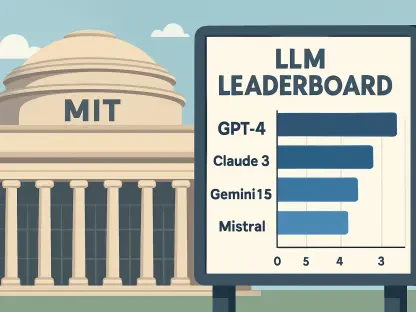I’m thrilled to sit down with Laurent Giraid, a renowned technologist whose expertise in artificial intelligence, machine learning, and natural language processing has made him a leading voice in the tech world. With a keen interest in the ethical implications of AI, Laurent offers unique insights into the evolving landscape of search technology and AI-powered applications. Today, we’re diving into the recent launch of a groundbreaking search API by a rising player in the industry, exploring how it aims to challenge the dominance of legacy search giants, its technical innovations, and what it means for the future of information access.
Can you explain what this new Search API is and why it’s creating such a buzz in the tech world?
Absolutely. This Search API is a game-changer because it provides developers with direct access to a massive web index—think hundreds of billions of pages—updated in real time. It’s designed to power AI-driven applications and traditional web services alike, offering a level of access and flexibility that’s been hard to come by. The buzz comes from its potential to disrupt the status quo, challenging the tight grip that major tech players have held over search data for years.
How does this API stand out from the tools already available from established search providers?
What sets it apart is its focus on the needs of modern developers, especially those building AI applications. Unlike traditional search tools that often prioritize commercial traffic, this API delivers AI-optimized results with structured data and citations. It also tackles issues like content staleness with real-time updates, processing thousands of changes per second, which is a huge leap forward compared to the delays you see with older systems.
Why do you think this could pose a real challenge to the dominance of legacy search engines?
Legacy search engines have historically restricted access to their data, often locking developers into their ecosystems with limited APIs or sudden service discontinuations. This new API breaks that mold by offering an alternative with a massive scale and a developer-first approach. If it gains traction, it could shift the balance, giving smaller players and startups the tools to innovate without being tethered to a single giant’s infrastructure.
Can you dive into the concept of breaking the stranglehold of tech giants in the search space?
Sure. For years, major tech companies have controlled search data like gatekeepers, deciding who gets access and under what terms. This control often prioritizes their own interests—think ad revenue—over the needs of developers or users. By providing an open, comprehensive alternative, this API aims to level the playing field, letting developers build products without bowing to the limitations or agendas of a few dominant players.
What are some of the technical innovations in this API that make it particularly exciting for developers?
One standout feature is the real-time indexing, which makes new content searchable almost instantly—something traditional engines struggle with. Then there’s “sub-document precision,” which zeroes in on specific passages within pages rather than just ranking whole documents. This is incredibly useful for delivering precise, relevant answers, especially for AI systems that thrive on context. Lastly, the hybrid retrieval system blends keyword and semantic search, so it can handle everything from simple lookups to complex, conversational queries.
How does the AI-optimized formatting of search results enhance its value for modern applications?
The results aren’t just a list of links; they’re structured snippets with contextual relevance, tailored for integration into AI models and apps. This means developers can feed high-quality, targeted data directly into their systems without extra processing. Plus, the inclusion of citations ensures transparency—something critical in an era where AI often gets flak for using content without credit. It’s a thoughtful design that aligns with both technical and ethical needs.
What kind of support is being offered to help developers adopt this new technology?
There’s a robust platform in place, including detailed documentation and developer consoles to ease the integration process. They’ve also rolled out an open-source framework for benchmarking search APIs, which lets developers test performance and quality before fully committing. It’s clear there’s an emphasis on building trust and confidence, making the transition as smooth as possible for those ready to switch.
Looking at the broader implications, how do you see this API shaping the future of search and AI innovation?
If successful, this API could democratize access to high-quality web data, which is huge for innovation. Startups and independent developers could build cutting-edge AI tools without the prohibitive costs or restrictions tied to legacy providers. It might also push the industry toward more ethical practices, like proper source attribution, and inspire other challengers to enter the space. Ultimately, it could redefine how we discover and interact with information online.
What’s your forecast for the future of search technology in light of these developments?
I think we’re on the cusp of a major shift. Search technology will likely become more distributed and competitive, with AI playing a central role in delivering personalized, context-aware results. We’ll see a push toward transparency and fairness in how data is accessed and used, especially as regulatory scrutiny grows. If alternatives like this API continue to gain ground, we might finally move away from a monopolized landscape to one where innovation and user benefit take center stage.









